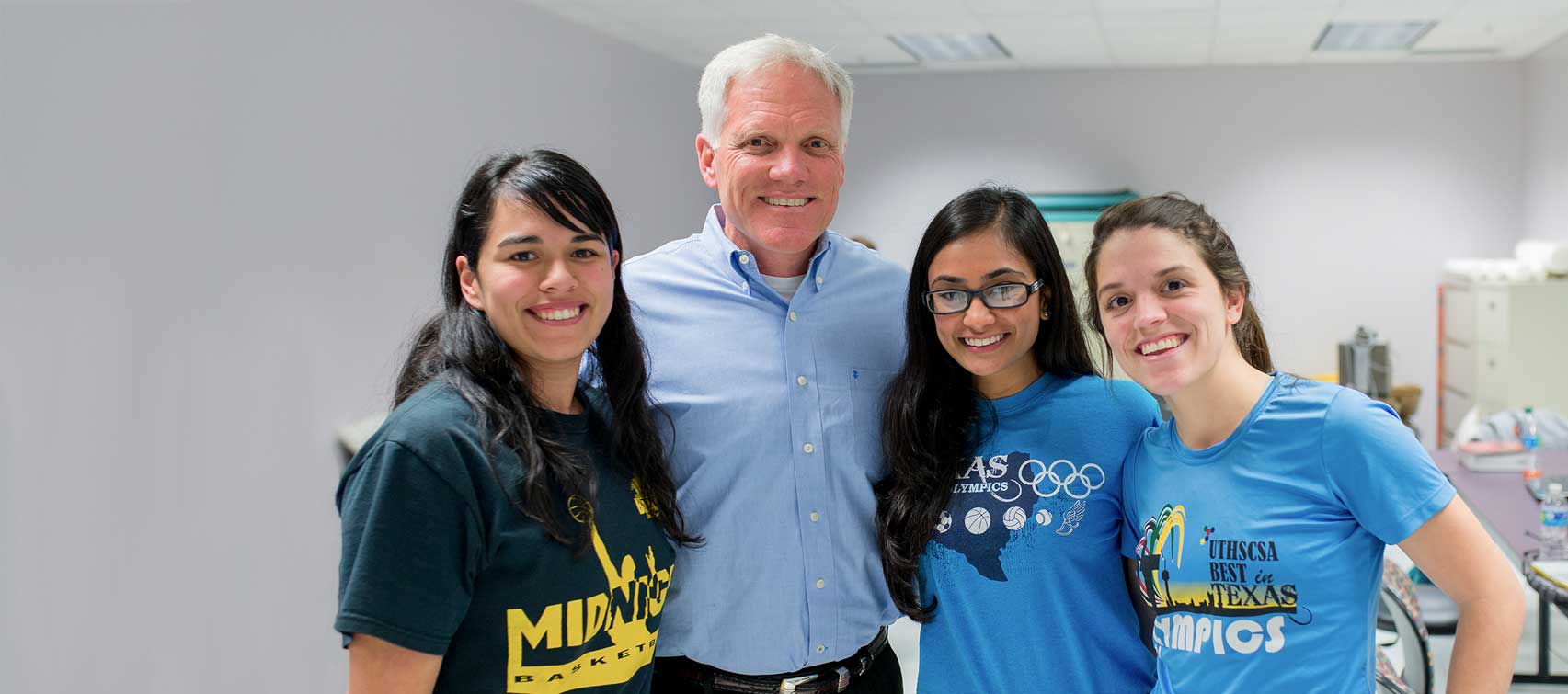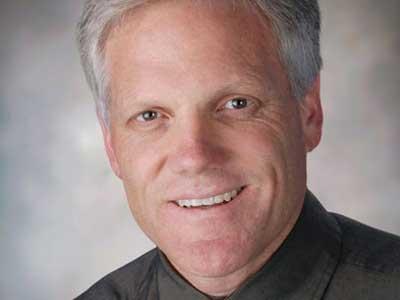At first glance, Gregory Ernst, Ph.D., PT, has devoted his professional life to two distinct paths: patient care and teaching. But, as he likes to point out, the paths are not separate at all.
“I like to think I’m treating patients through my students,” he said. “What my students learn, they are going to carry on and use that knowledge to have an impact on patients. That’s one of the things that really motivates me. I want patients to be well taken care of, and I can do that through teaching.”
An associate professor in the Department of Physical Therapy at The University of Texas Health Science Center San Antonio, Dr. Ernst was one of this year’s recipients of the Presidential Teaching Excellence Award, given annually by Health Science Center President William L. Henrich, M.D., MACP, to outstanding faculty members who not only are experts in the subject material but also are role models and mentors to their students.
Bringing students up to speed
Dr. Ernst came to the Health Science Center in 2006 after 24 years in the military – the Army from 1982 to 1988 and then the Navy from 1988 until 2006. Along the way he earned a master’s degree in physical therapy from Baylor University and a Ph.D. in sports medicine/education from the University of Virginia.
He was a physical therapist in clinics throughout his military service. During those years, he said, he worked with many young therapists doing their clinical rotations. “Some would be very well prepared and do great jobs and others wouldn’t,” he recalled. “When you’re in the clinic and you see these students that maybe aren’t as well prepared as they should be … that would motivate me to try to bring that student up to speed so they could take good care of patients.”
The experience led him naturally to the classroom, he said.
And once there, he’s made the most of it. He aims to get the student excited, enthusiastic about learning and engaged.
“I believe that the process of education is far more important than ‘getting an education,’” he said. “I liken the process of learning to the process of climbing a mountain peak. The student must enjoy the challenge of the climb and not just be satisfied with reaching the top.”
Case studies and real-life examples
He said he routinely draws on his clinical experience to bring the material to life.
“You can go to a conference, for example, and people will be droning on and on about research or this or that. But as soon as somebody starts talking about a patient, about a real-life example, you see people perk up and sit on the edge of their seats. They start to be more engaged and pay more attention.”
Dr. Ernst doesn’t allow his students to be passive observers. “I challenge students with case studies in the classroom,” he said. “The case studies become even more relevant as students role play the scenarios in lab sessions. Another tool I use to spark enthusiasm toward learning is to engage the students in debates. I assign groups of students a controversial topic in physical therapy; they research the evidence and openly debate each other in front of their classmates.”
He moves, he questions, and, he readily admits, he’s a bit of an entertainer in the classroom. “You have to make things fun and interactive,” he said.
As an associate professor in the Health Science Center’s doctor of physical therapy program, Dr. Ernst teaches, among other courses, musculoskeletal physical therapy and therapy after an amputation and the application of a prosthetic. He holds leadership roles in professional organizations at the national level and was instrumental in establishing the first clinical residency for physical therapists in electrodiagnostics in the nation.
An inspiration
Current and former students praise Dr. Ernst for his teaching style, classroom organization and mentorship.
“Dr. Ernst prepared me well for the area of clinical practice, but what makes him a continued inspiration to me is that, despite all the letters that follow his name, he has not slowed his passion to make the lives of people better,” said research physical therapist and former student Francis Bisagni, D.P.T., PT. “His mentorship during my research experience whetted my appetite for physical therapy research and is in large part why I am a researcher and adjunct faculty member with the U.S. Army-Baylor University doctoral program in physical therapy today.”
Developing lifelong learners is one of Dr. Ernst’s goals, but that just doesn’t happen without a focused effort, he said.
“I believe that faculty must take an active and explicit role to develop this characteristic in students by instilling enthusiasm for learning in the classroom, lab and clinic,” he said.

